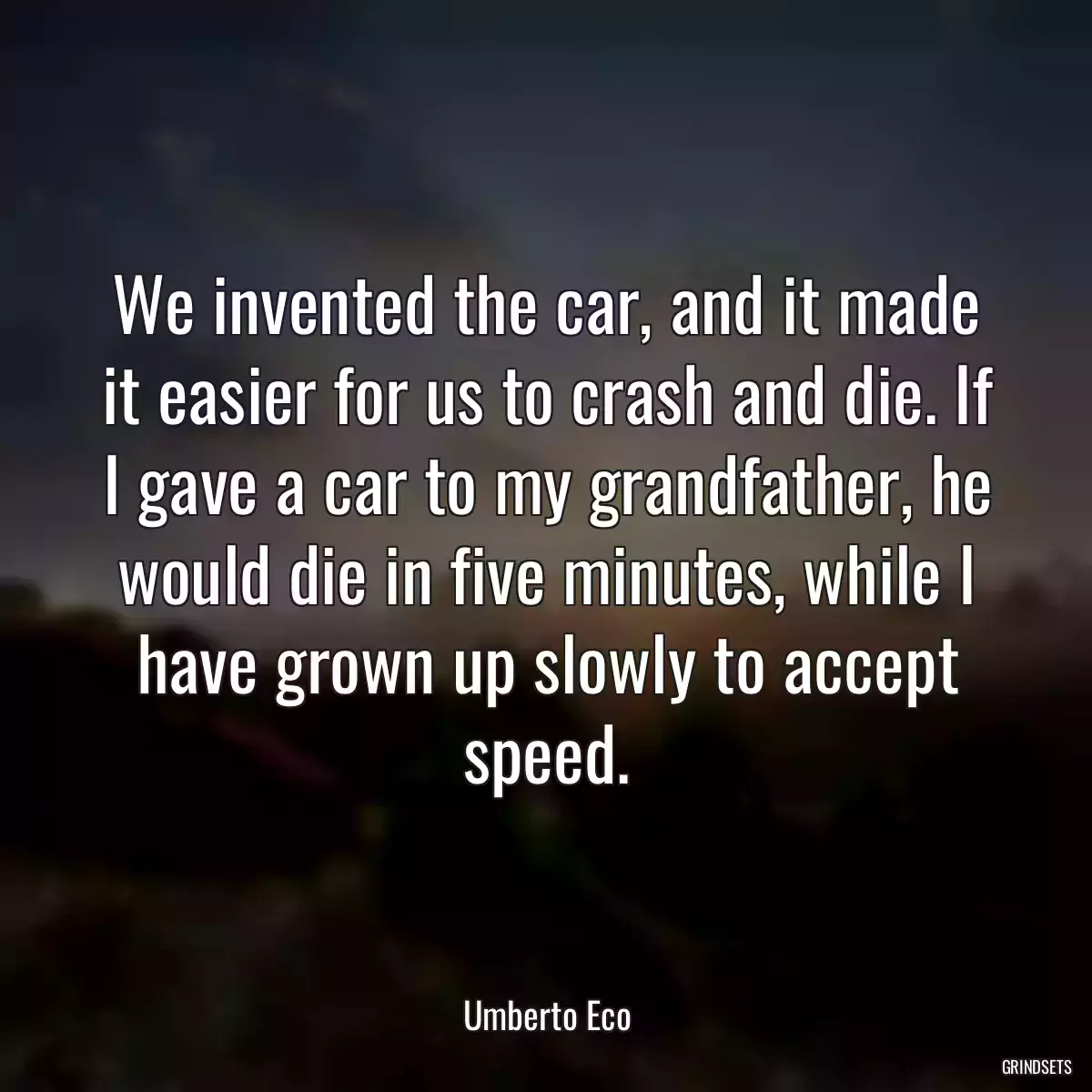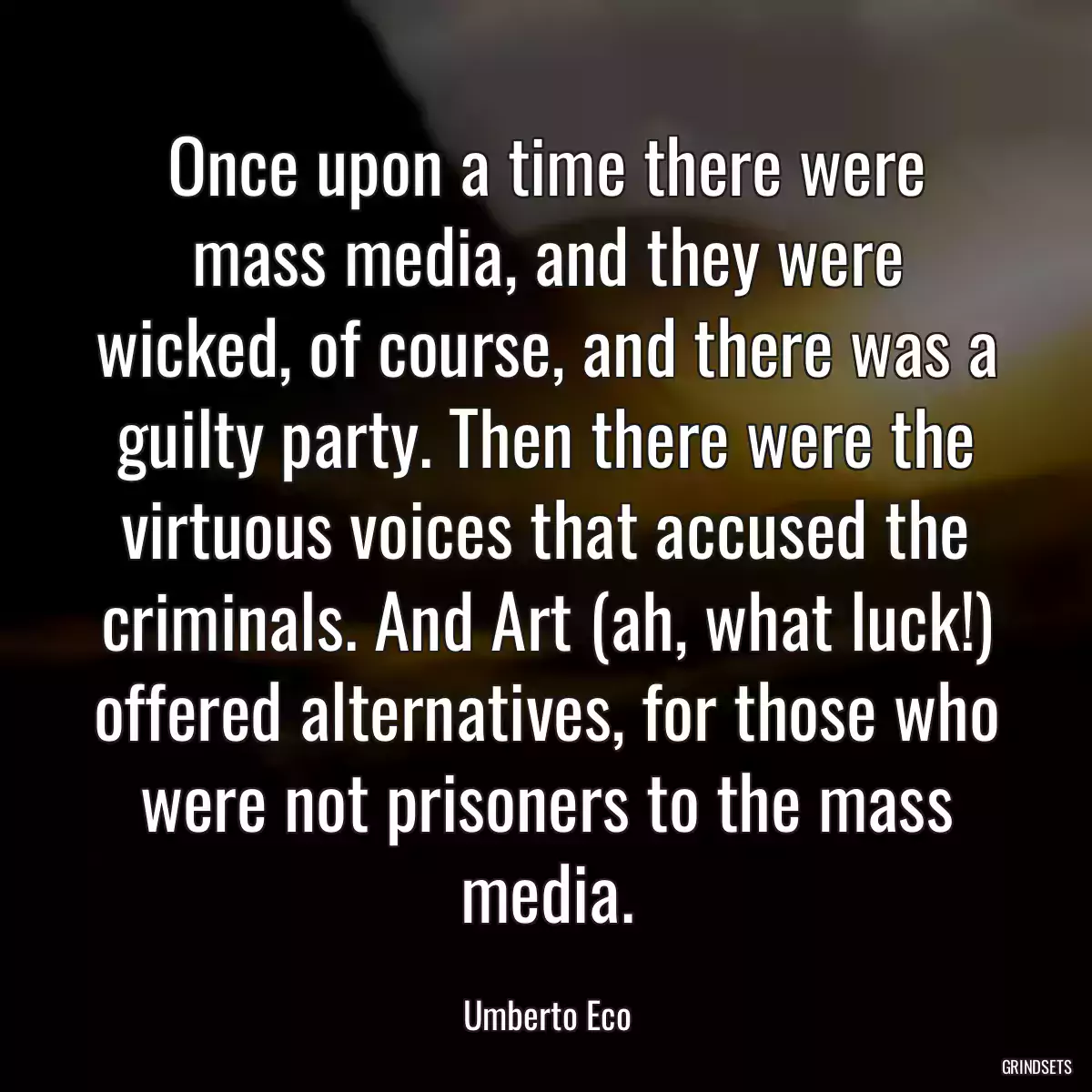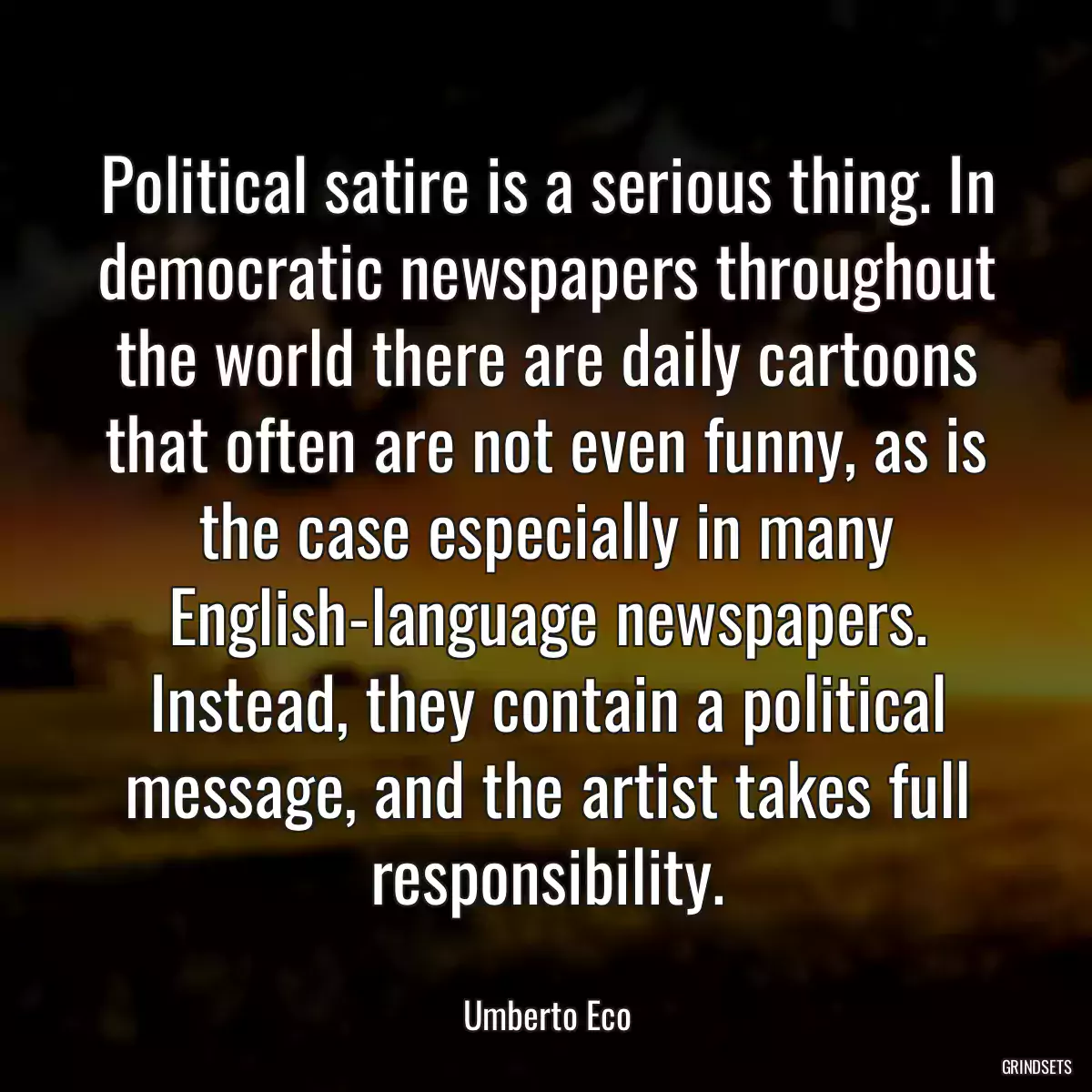
Quotes Umberto Eco - page 2
Find dozens of Umberto Eco with images to copy and share.

But why do some people support [the heretics]?" "Because it serves their purposes, which concern the faith rarely, and more often the conquest of power." "Is that why the church of Rome accuses all its adversaries of heresy?" "That is why, and that is also why it recognizes as orthodoxy any heresy it can bring back under its own control or must accept because the heresy has become too strong.
A human best, which is very little. Its hard to accept the idea that there cannot be an order in the universe because it would offend the free will of God and His omnipotence. So the freedom of God is our condemnation, or at least the condemnation of our pride.
There are magic moments, involving great physical fatigue and intense motor excitement, that produce visions of people known in the past. As I learned later from the delightful little book of the Abbé de Bucquoy, there are also visions of books as yet unwritten.
You may also like
Entering a novel is like going on a climb in the mountains: You have to learn the rhythms of respiration - acquire the pace. Otherwise you stop right away.
This, in fact, is the power of the imagination, which, combining the memory of gold with that of the mountain, can compose the idea of a golden mountain.
I returned to the courtyard and saw that the sun had grown weaker. Beautiful and clear as it had been, the morning (as the day approached the completion of its first half) was becoming damp and misty. Heavy clouds moved from the north and were invading the top of the mountain, covering it with a light brume. It seemed to be fog, and perhaps fog was also rising from the ground, but at that altitude it was difficult to distinguish the mists that rose from below and those that come down from above. It was becoming hard to discern the bulk of the more distant buildings.
My father was an accountant and his father was a typographer.
It is clear that when you write a story that takes place in the past, you try to show what really happened in those times. But you are always moved by the suspicion that you are also showing something about our contemporary world.

When we traded the results of our fantasies, it seemed to us-and rightly-that we had proceeded by unwarranted associations, by shortcuts so extraordinary that, if anyone had accused us of really believing them, we would have been ashamed.
I started to write [The Name of the Rose] in March of 1978, moved by a seminal idea. I wanted to poison a monk.
The photograph [of Che Guevara], for a civilization now accustomed to thinking in images, was not the description of a single event... it was an argument.
The west has decided to channel money and effort into studying other customs and practices, but no one has really given other people the chance to study western customs and practices, except at schools maintained by white expatriates, or by allowing the rich from other cultures to study in Oxford or Paris. What happens then is that they return home to organise fundamentalist movements, because they feel solidarity with those of their compatriots who lack the opportunity for such education.
The faith a movement proclaims doesn't count: what counts is the hope it offers. All heresies are the banner of a reality, an exclusion. Scratch the heresy and you will find the leper. Every battle against heresy wants only this: to keep the leper as he is.
My poetry had the same functional origin and the same formal configuration as teenage acne.
Show not what has been done, but what can be. How beautiful the world would be if there were a procedure for moving through labyrinths.
Daytime sleep is like the sin of the flesh; the more you have the more you want, and yet you feel unhappy, sated and unsated at the same time.
You may also like

When all the archetypes burst out shamelessly, we plumb the depths of Homeric profundity. Two clichés make us laugh but a hundred clichés moves us because we sense dimly that the clichés are talking among themselves, celebrating a reunion. . . . Just as the extreme of pain meets sensual pleasure, and the extreme of perversion borders on mystical energy, so too the extreme of banality allows us to catch a glimpse of the Sublime.